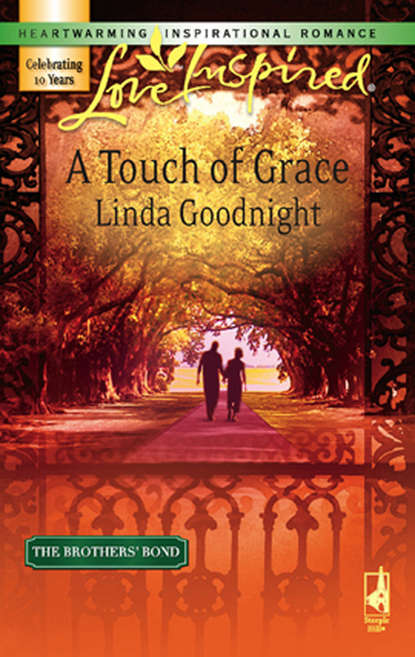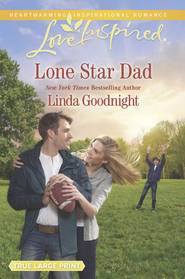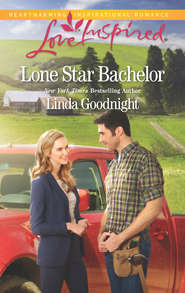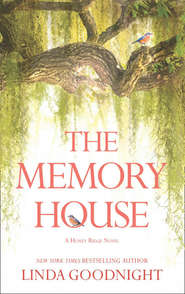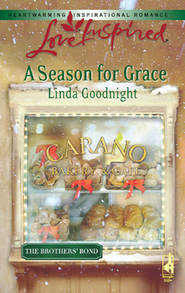По всем вопросам обращайтесь на: info@litportal.ru
(©) 2003-2025.
✖
A Touch of Grace
Автор
Год написания книги
2019
Настройки чтения
Размер шрифта
Высота строк
Поля
Ian’s belly started to hurt. He sneaked a glance at Collin. Collin didn’t like it when Drew freaked out. That’s what Collin called it. Freakin’ out. Drew was mad, kicking and spitting and screaming. Bad stuff happened when Drew freaked out.
Sure enough, Mr. James grabbed his brother and pushed him into a chair. Mr. James was nice, but he was strong. With big muscles. And Drew was only seven.
“Settle down. Right now,” Mr. James said. “We’re trying to help.”
Drew struggled, growling like a mean tomcat. His too-long brown hair flopped wildly. He spit at Mr. James and said a bad word. Now he’d be in worse trouble. Drew never knew when to stop.
Ian couldn’t help it then. He started to cry. He clamped his lips tight and tried to stop, but he couldn’t. The sound stuck inside him, like peanut butter swallowed too fast. His chest hurt. He didn’t want the counselor to be mad at him, too. He didn’t want anyone to be mad. But he was scared and the tears pushed hard at the backs of his eyes.
His legs shook so much his hand-me-down tennis shoes nearly fell off.
He looked at Collin, afraid to talk for fear he’d say the wrong thing again. He needed to go the bathroom but wasn’t about to ask. What if the social worker took him away this time, and he never got to see Drew and Collin again? Mama said that would happen if they went around shooting off at the mouth.
He shouldn’t have told.
The tears ran through his nose and into the corners of his lips. He swiped at his face with the buttonless sleeve of his flannel shirt. This was all his fault.
Then Collin came over and put a hand on his head. Not a mad hand. A gentle, don’t-cry, hand. A quivery sigh ran through Ian. Collin would take care of him. He always did.
The social worker lady came over, too, and squatted down in front of his chair. She had nice eyes. And her voice was soft like Ms. Smith’s. But Collin didn’t like her. Ian could tell. Collin’s face was hard and mad, kind of scary.
“Don’t cry, Ian. I know you’re upset,” the lady said. “But you’re going to a real nice place that’s warm and has plenty to eat.”
Ian sniffed and looked at the woman. She smelled so nice. Much better than Mama. But he loved Mama. He wished she’d come home.
The social worker tapped the end of his shoe. The old stringless thing slipped off his heel. “We’ll get you some new tennis shoes, too. Ones that fit.”
Ian sucked in a hiccup. Shoes that fit. He’d like that. These were cold. The bottoms had holes and the inside was torn out. Sometimes they made sore places.
He wondered if he’d get some socks, too. White ones that came high up his leg and didn’t fall down when he walked.
He hoped they went back to the same foster house again. The lady there was soft and smiley and let him eat all the food he wanted. He didn’t know why Collin and Drew didn’t like foster houses.
“Collin.” The social worker looked up at his big brother. “You’re old enough to understand that this is for the best. You boys can’t continue living alone in that old trailer. Now, why don’t you help us get the little ones into the car?”
Collin didn’t even look at her. He stared at the wall like a superhero trying to look through to the other side.
Mr. James did a funny thing then. Keeping one hand on Drew’s shoulder, he got down on his knees in front of the chair and talked about baseball and God.
He said, “Boys, sometimes life throws a curveball. But remember, no matter what happens today or forever, Jesus will always be with you, watching over you.”
Collin must be a lot like Jesus. He always watched over Drew and Ian when Mama was gone. Well, even when Mama was home.
Then Mr. James bowed his head and started whispering. A prayer, Ian thought. The room got real quiet. Even Drew quit fighting.
When the prayer ended, Mr. James handed them each a little key chain with a metal fish on it. Collin wouldn’t take his.
“This is a gift from me to you, not as your counselor, but as a friend who cares.” He stared up at the social worker as if daring her to argue. She looked at the door and didn’t say a thing. “You don’t have to take it, Collin, but I hope you will. It’s a reminder that God will always care for you no matter where you go or what you do. He’ll never leave you. Never.”
Ian liked the sound of that. Jesus must be real nice.
Even though he stood stiff as a statue, Collin let Mr. James put the key chain in his hand. He wanted it. He was just too mad to say so. Then his voice scraped the air like rusty metal. “Where we going this time?”
The social worker lady stood up and moved toward him like she might touch him. Collin backed away.
“We’ve found placements for Drew and Ian.”
Ian’s heart slammed against his rib cage. What about Collin? He didn’t go anywhere without Collin.
“Together?” Collin asked.
“Not this time. I’m sorry.”
What was she saying? That he and his brothers wouldn’t be together? That he would be all by himself with a bunch of strange people? His legs started jerking again.
“They stay with me,” Collin said, but this time he sounded uncertain, as if maybe something bad was about to happen and he couldn’t fix it. “Ian gets scared at night.”
The lady touched Collin’s arm and her voice went soft and sweet. “He’ll be fine. They both will be. And so will you. Now, come on. We need to go.”
Turning, she held out her hand to Ian and smiled. He looked at Collin, saw the truth in his big brother’s eyes. This time Mama was right. Collin and Drew would go away and leave him. He would never see his brothers again. All because of his big fat mouth.
Chapter One
Twenty-three years later, New Orleans
“Dead!”
Head still foggy from a nightmarish sleep, Ian Carpenter pushed up on one elbow. He tried to shake himself awake enough to think straight. Someone had discovered a dead girl on the grounds of Isaiah House.
Heart jump-started by the horror of such a thing, he squinted one eye at the red digital alarm clock. Six-fifteen. After combing the streets of the French Quarter most of the night, he’d been in bed less than three hours. Whatever happened had gone down in that brief time.
Sometimes the futility of what he did was overwhelming.
Through a throat filled with gravel, he said, “I’ll be right down.”
In five minutes flat, he had showered and dressed in his usual jeans and T-shirt. He shoved on the new pair of Nike Shox he’d purchased yesterday, finding little joy in them now, and tiptoed down the squeaky wooden stairs of the old three-story mission house. Soon enough, the ten in-house residents would begin the day and he would be expected in the chapel with a word or to play the saxophone.
Ian both loved and hated his calling. He loved the people. He loved ministering and counseling. And he especially loved when someone’s life was turned around by the power of God’s love. But he hated times like these when the dark side won.
In the predawn September morning, he opened the back door out into the courtyard, a beautiful, lush green sanctuary where he often prayed and sought answers to the myriad problems of Isaiah House, the mission he’d started three years ago on faith and a few hundred dollars.
God had called him to this place of beauty and debauchery before Hurricane Katrina. Since the disaster, his work had more than tripled. Originally a small haven for runaways, Isaiah House now did whatever it could for any and everyone. True to the scripture that served as its cornerstone, the mission was a hand extended to whoever needed it. Sometimes that hand was stretched pretty thin.
This morning his courtyard sanctuary was hushed, the willows weeping condensation onto the cobblestone walkway as if mourning what lay just outside the mission walls. Beyond the dripping-wet elephant ears and lemon-scented magnolias, yellow police tape vibrated in the twilight stillness.
The stark contrast wasn’t lost on Ian. He’d worked the streets and slums of various cities all over the country since junior high school when Mom and Dad signed him up for summer missions’ work. Now, at twenty-eight, he’d come to understand all too well that beauty and tragedy coexisted everywhere. Sometimes he felt overwhelmed by his need to make a difference and the utter numbers of despairing mankind.
Ian leaned for a second against the rough bark of a moss-draped oak and squeezed his sleep-gritty eyes shut against the covered body lying on the ground.





